Philosophy \ 1-1

This book has been prepared to deal with the ways in which otherness transforms into excluded otherness and to discuss this within moral thought. Because if a moral relationship is not established with the existence of the other, the alienation of the other emerges.
Today, problems arising from otherness occupy the agenda all over the globe. Xenophobia, ethnocentrism, racism, religious fanaticism, Islamophobia and nationalism are among the rising threats of our age. While nation states resort to identity-reinforcing policies with exaggerated security discourses to overcome their legitimacy crisis,
On the other hand, the socio-cultural crises faced are pushing the masses towards marginalizing language. Increasing global conflicts and the resulting migration waves bring up traumatic encounters with someone else. In this context, there is a need for a new perspective on morality and the other. If the existence of someone else, who has a moral idea in his essence, is taken as the basis of human life, a recognition can take place without othering, and this recognition can bring about a moral obligation.
Within the framework of this perspective, there are articles in the book that deal with the concepts and debates about the other/other in modern philosophy and Islamic thought.
is. Thus, it is aimed to create a new approach as well as a general and comparative perspective.
Contributors
Ahmet Ayhan Çitil • Burhanettin Tatar • Cafer Sadik Yaran • Kasım Küçükalp Lütfi Sunar • Ömer Türker • Özkan Gözel • Selami Varlık
Today, problems arising from otherness occupy the agenda all over the globe. Xenophobia, ethnocentrism, racism, religious fanaticism, Islamophobia and nationalism are among the rising threats of our age. While nation states resort to identity-reinforcing policies with exaggerated security discourses to overcome their legitimacy crisis,
On the other hand, the socio-cultural crises faced are pushing the masses towards marginalizing language. Increasing global conflicts and the resulting migration waves bring up traumatic encounters with someone else. In this context, there is a need for a new perspective on morality and the other. If the existence of someone else, who has a moral idea in his essence, is taken as the basis of human life, a recognition can take place without othering, and this recognition can bring about a moral obligation.
Within the framework of this perspective, there are articles in the book that deal with the concepts and debates about the other/other in modern philosophy and Islamic thought.
is. Thus, it is aimed to create a new approach as well as a general and comparative perspective.
Contributors
Ahmet Ayhan Çitil • Burhanettin Tatar • Cafer Sadik Yaran • Kasım Küçükalp Lütfi Sunar • Ömer Türker • Özkan Gözel • Selami Varlık

In this book, which is the second book of the Pocket Books series, which consists of books on the basic institutions and issues of Islamic economics, the subject of morality is tried to be explained in a content that can be easily understood by people of all levels, rather than a theoretical depth. Morality is one of the most fundamental issues that exist in all human societies. All economic, social and cultural systems are built on this foundation. Because morality is the set of basic values and rules that make it possible to live together with the society, in mutual solidarity and trust, which directs the instinctive desires of the individual to appropriate and legitimate social channels. The work in your hand deals with the place and role of morality in human life, which can be handled in a multi-dimensional and multi-dimensional way, in the context of economy, which is one of the most important relationship networks surrounding people in today's world. In this respect, in the first part of the work, the role of morality in the experience of living together, its relationship with law and religion, the reasons for the differences in business life are discussed, in the second part, the role of morality in the conduct of economic life is discussed, and finally, the effects of the marketization and globalization of the economy on morality are discussed.

One of the most important results of the transformation of human conceptions produced in the classical world in the modern period is that people change their expectations and hopes about themselves. This situation both affected the hierarchy of questions and required a new set of questions to be asked in the field of ethics, as in many other fields. In this context, especially in the last half century, the reason for human morality has become questionable and some movements have begun to evaluate morality as a purely conscientious condition.
As long as morality is understood as a phenomenon completely related to the conscience of the individual, the relationship between individuals or the outward aspect of morality should be considered as a problem of politics rather than morality. In this case, a sanction can be mentioned as long as the situations to be considered as immoral fall into the field of law. However, since this result is essentially an extension or inevitable result of a certain conception of man and society, it requires to be considered in terms of different conceptions of man and society. In the book in your hand, you will find the texts of the conferences held in the "Conversations on Moral Sanction" series held within the Islamic Moral Thought Project in 2015 in order to question the relationship between morality and sanction.
As long as morality is understood as a phenomenon completely related to the conscience of the individual, the relationship between individuals or the outward aspect of morality should be considered as a problem of politics rather than morality. In this case, a sanction can be mentioned as long as the situations to be considered as immoral fall into the field of law. However, since this result is essentially an extension or inevitable result of a certain conception of man and society, it requires to be considered in terms of different conceptions of man and society. In the book in your hand, you will find the texts of the conferences held in the "Conversations on Moral Sanction" series held within the Islamic Moral Thought Project in 2015 in order to question the relationship between morality and sanction.
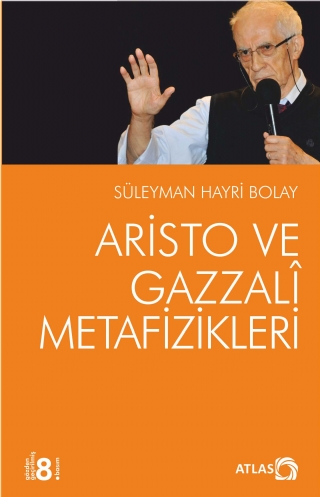
This work, which has reached its seventh edition, broke new ground in some respects in Turkey. Because, until this work, no in-depth comparison of the philosophical views of the great and basic names of Eastern/Islamic and Western thought has been made in our country. Consequently, this study not only sets an example by comparing the metaphysical concepts of Aristotle and Ghazali and the main ideas they contain, but also clearly shows what a great thinker like Ghazali took from Aristotle, what he did not take, and where he opposed his views. demonstrated way. While doing this, he revealed that al-Ghazali's claim that he stopped thinking in the Islamic world is unfounded, and also revealed how he systematically solved the problems he dealt with one by one.
Comparing the two great summits of the world of philosophy and thought in Turkey is interesting to anyone who is interested in the subject. The fact that such a heavily-themed book has reached its sixth edition is a testament to the interest shown to it. We hope that this work, which became a classic before it reached a quarter of a century, will gain the same attention from now on. By reprinting such a work, Nobel Academic Publishing makes a great contribution to our history of thought.
Comparing the two great summits of the world of philosophy and thought in Turkey is interesting to anyone who is interested in the subject. The fact that such a heavily-themed book has reached its sixth edition is a testament to the interest shown to it. We hope that this work, which became a classic before it reached a quarter of a century, will gain the same attention from now on. By reprinting such a work, Nobel Academic Publishing makes a great contribution to our history of thought.
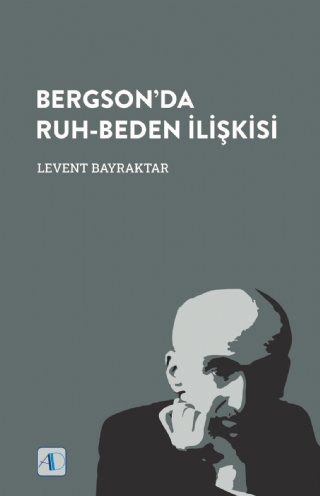
Bergson is one of the philosophers awarded the Nobel Prize for Literature. In his age, his lectures and conferences were followed with interest by a large fan base. The fact that it has a wide culture and strong rhetoric has a great share in this. Referring to the sciences, but not a scientist and a positivist, Bergson, without limiting thought to phenomena, directs it to the highest issues that the human mind wonders and questions. In his works; As a result of sound judgment, analysis and criticism, it presents a proposal that exceeds the given one. His philosophy, which he based on the fields of mathematics, physics, biology, psychology, sociology and even theology; It is like an example that a metaphysics that can be integrated with the sciences can be possible and legitimate. In this respect, reading and studying Bergson also means learning philosophy from a philosopher who expands the boundaries of philosophy.
In this book, the place and position of Bergson's philosophy in the history of philosophy is examined based on the relationship between the soul and the body. Thus, the work deals with Bergson's metaphysics on the one hand, and on the other
It offers the opportunity to encounter the soul-body relationship and, on the other hand, many philosophical schools. In this context, currents such as materialism, positivism, naturalism, intellectualism, criticalism, parallelism, finalism, mechanism, evolutionism come to the fore and are examined.
In this book, the place and position of Bergson's philosophy in the history of philosophy is examined based on the relationship between the soul and the body. Thus, the work deals with Bergson's metaphysics on the one hand, and on the other
It offers the opportunity to encounter the soul-body relationship and, on the other hand, many philosophical schools. In this context, currents such as materialism, positivism, naturalism, intellectualism, criticalism, parallelism, finalism, mechanism, evolutionism come to the fore and are examined.

The history of science is a research activity that examines the development process of scientific knowledge, and by making use of historical information, the birth and spread of scientific theories in various periods, the way of thinking of scientists and their effects on the development process of social institutions, their mutual relations with other intellectual activities such as philosophy, religion and art, their place in the formation of technical knowledge, It tries to recognize and promote scientific activity in all its aspects by questioning the value and importance of individuals in their daily lives.
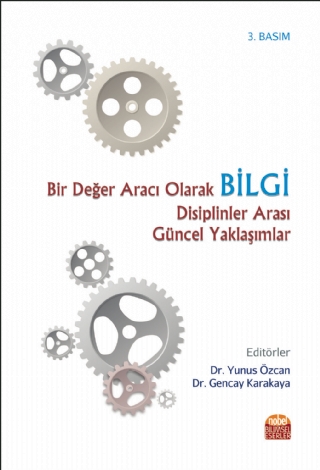
Developing and changing social, economic and political conditions have made it essential to take the right decisions and make strategic moves. In order for decision makers to make correct and consistent decisions, they need to have the right information. Getting the right information is not an instant situation. A process is required to provide accurate information. In today's conditions, where the motivation for "added value" is increasing, it has been experienced that the most important source of this is knowledge. The painful experiences experienced in the periods when the information element was neglected, revealed the importance of accessing the right information in a timely, economical and consistent manner.
In this book, it has been tried to gain a multi-dimensional and interdisciplinary view to the concept of knowledge with faculty members from about 20 different disciplines and professionals who are experts in their fields. In this way, it has been tried to be brought into account that knowledge is the basic and most important input of all branches of science. Thanks to this feature, all concerned, especially academicians, will have the opportunity to examine and examine the approaches of different disciplines to the concept of knowledge as well as their own fields. In this respect, it is thought that it will fill a gap in the field.
In this book, it has been tried to gain a multi-dimensional and interdisciplinary view to the concept of knowledge with faculty members from about 20 different disciplines and professionals who are experts in their fields. In this way, it has been tried to be brought into account that knowledge is the basic and most important input of all branches of science. Thanks to this feature, all concerned, especially academicians, will have the opportunity to examine and examine the approaches of different disciplines to the concept of knowledge as well as their own fields. In this respect, it is thought that it will fill a gap in the field.

The educational institution Darülfünun, which was established as the university leg of the innovation movement in the last period of the Ottoman Empire, is an indicator of many things in the name of innovations and transformations made in the educational sense with the effect of the periodic break. In this sense, the moral lessons taught in Darülfünun also took their share from the transformation and breaking character of the period. In the book, the teachers who teach the moral courses, the syllabus and the works taught in the course constitute the subject of the research in an inseparable integrity. The follow-up of these elements shows the importance given to moral education at the university level at that time, the educational background of the teachers and the intellectual effects they have, as well as the moral understanding they defended with the moral studies they brought into being.
This book; By revealing how the innovations and regulations made in Darülfünun affect the existence of moral courses, how often they can be included in the curriculum, who the teachers who teach the ethics courses are, what education and intellectual inclination they have, what the works of these teachers about morality are, what effects they have, In addition to being a research that seeks answers to questions such as whether the change and transformation observed in moral courses can be extended to Darülfünun in general, it also reveals the transformation of moral understanding that emerged in the process in Darülfünun.
This book; By revealing how the innovations and regulations made in Darülfünun affect the existence of moral courses, how often they can be included in the curriculum, who the teachers who teach the ethics courses are, what education and intellectual inclination they have, what the works of these teachers about morality are, what effects they have, In addition to being a research that seeks answers to questions such as whether the change and transformation observed in moral courses can be extended to Darülfünun in general, it also reveals the transformation of moral understanding that emerged in the process in Darülfünun.
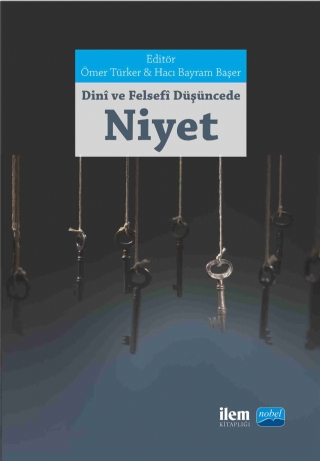
Intention is one of the most fundamental concepts of morality, as one of the key stages in the formation of behavior. In both religious and philosophical thought, intention is considered as the element that adds value to the action and makes it meaningful. In this respect, intention and various states of intention are of decisive importance in terms of both the meaning of being religious and being moral. However, the theoretical dimensions of intention have not been examined in sufficient depth. In this context, the book in your hand aims to identify the views and theories that emerged in the traditions of Islamic thought about the role of intention in the formation of the act; It aims to reveal what and to what extent the contribution of the intention is in the evaluation of the legal, religious and especially the moral value of the act and to clarify the role of the intention in the name and definition given to the perpetrator of an act.
This book, which consists of the works presented at the Workshop on Intention in Religious and Philosophical Thought, held in Istanbul on September 30-October 1, 2016 within the scope of the Islamic Moral Thought Project, covers religious sciences such as fiqh, kalam and mysticism, as well as the subject of intention in Islamic philosophy and Western philosophy. It consists of a total of nine articles examining how it is handled.
This book, which consists of the works presented at the Workshop on Intention in Religious and Philosophical Thought, held in Istanbul on September 30-October 1, 2016 within the scope of the Islamic Moral Thought Project, covers religious sciences such as fiqh, kalam and mysticism, as well as the subject of intention in Islamic philosophy and Western philosophy. It consists of a total of nine articles examining how it is handled.

Efforts to explain human as a sentient being in philosophy are highly controversial. Because the idea that man is an intelligent being has always been considered important and his feelings have not been taken into account. Although mind and emotion are two different dimensions of the same person, the relationship between them has often been evaluated as a contrasting relationship. However, the human mind and emotions are creatures that cannot be denied.
With this book, whose aim is to evaluate the subject based on the remarkable emotional views of philosophers in the history of philosophy from antiquity to the present, it is aimed to create a philosophical view of emotion. It is aimed to contribute to studies that will draw attention to the emotional dimension of human beings.
With this book, whose aim is to evaluate the subject based on the remarkable emotional views of philosophers in the history of philosophy from antiquity to the present, it is aimed to create a philosophical view of emotion. It is aimed to contribute to studies that will draw attention to the emotional dimension of human beings.
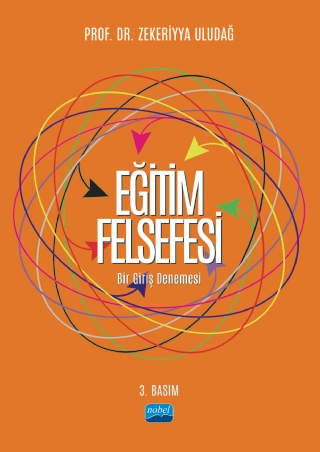
The history of humanity is the name of the time when the being reached its own realization. This is an effort to catch the permanent in a relative moment and to dedicate oneself to eternity. One aspect of this history is the spirit shaped by thought, and the other aspect is the education that helps the mind and will to be embodied, almost to enter the mold of the body. While man wants to reach happiness and truth within the time frame given to him, he has benefited from three basic disciplines to achieve them. These; religion, philosophy and science. Therefore, no human activity is outside of these three disciplines. The first of these belongs to the emotion, the second belongs to the mind, and the third belongs to the body, that is, to see, and none of them can be considered separately from the other. Whoever wants to create a world, a mentality based on only one, will not be able to catch the whole. Because being is a whole made up of parts.
Since the 18th century, we are trying to shape our world of thought and education based on these theories, which we have transmitted from the West. However, we are faced with the fact that we cannot develop an educational idea of our own because we do not take into account the essential elements of our culture. Since the essential elements of the culture that make up civilizations are kept out of sight, the question "What kind of human do we want to raise?" No meaningful answer could be found.
This study tries to express a holistic understanding in terms of our philosophy of education, although it deals with the subjects that are touched upon in the classical philosophy of education books in our country. For this reason, while approaching the thoughts of philosophers who have a strong influence on education in the West from time to time, he also included the development process of the Turkish-Islamic civilization that made us who we are and conducive to the formation of the essential elements, and the thoughts of some personalities who contributed to it. . In addition, some of our contemporary thinkers who contributed to the thinking dimension of our education were also discussed. In short, this study was written to raise a question in the minds of both prospective teachers who are interested in education and those who are interested in this field.
Since the 18th century, we are trying to shape our world of thought and education based on these theories, which we have transmitted from the West. However, we are faced with the fact that we cannot develop an educational idea of our own because we do not take into account the essential elements of our culture. Since the essential elements of the culture that make up civilizations are kept out of sight, the question "What kind of human do we want to raise?" No meaningful answer could be found.
This study tries to express a holistic understanding in terms of our philosophy of education, although it deals with the subjects that are touched upon in the classical philosophy of education books in our country. For this reason, while approaching the thoughts of philosophers who have a strong influence on education in the West from time to time, he also included the development process of the Turkish-Islamic civilization that made us who we are and conducive to the formation of the essential elements, and the thoughts of some personalities who contributed to it. . In addition, some of our contemporary thinkers who contributed to the thinking dimension of our education were also discussed. In short, this study was written to raise a question in the minds of both prospective teachers who are interested in education and those who are interested in this field.
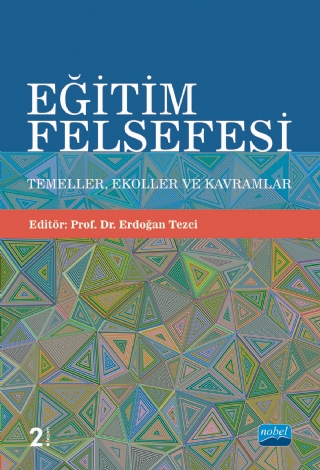
Looking at the development process of humanity from a historical perspective, it is seen that every social structure has some basic problems. Among these problems, how that society will continue to exist from the past to the future has emerged as a fundamental and vital problem. Every social structure first asks, “What kind of person do we want?” seeks an answer to the question. This answer determines the horizon lines of the border points that the future and development line of that society will reach. The philosophy of education is the name of the most basic intellectual activity that speculates about the border point that the future of a society will reach and discusses the nature of this border point and guides to construct a clear vision for the future. Philosophy of education, as a philosophical action, is at the center of all educational decisions. So much so that, while the philosophy of education guides the determination of high policies in the ministry of education as an abstract structure, in the classroom of a small village school it becomes flesh and bone with the curriculum, teaching methodology and teacher. The philosophy of education is right next to the teacher with all its majesty in all of the time a teacher spends at school and in every action related to education outside of school. However, teachers and school administrators do not have much time to spare for philosophical thought in a busy working day, which is often spent with the speed, bustle and hustle and bustle of daily life. However, every conversation about the students in the teachers' room, every decision taken in the principal's room, every idea put forward in the branch meetings shows that the education philosophy is alive in the school.
This is the main purpose of this book! This book aims to find an answer to the question of what the philosophy of education is, what kind of structure it consists of, and which schools are formed by differentiating the answers to the basic problems. It contributes to the development of a perspective in the reader as to why these schools emerged while meeting with many different traditions, from the most rooted schools of thought of the philosophy of education to the schools of thought we call modern. The main audience of this study, which is designed in a way that anyone who thinks about education can benefit, naturally consists of teachers and education faculty students. Texts on philosophy are often described as difficult. This is perhaps due to the rather complex nature of the topics covered. While discussing the subjects in this work, a plain expression was preferred as much as possible and the subjects were handled very clearly with the examples given. With this aspect, the work can be used as a basic text for the philosophy of education courses in the education faculties program, and can also be read as a basic introductory text for anyone interested in this field.
This is the main purpose of this book! This book aims to find an answer to the question of what the philosophy of education is, what kind of structure it consists of, and which schools are formed by differentiating the answers to the basic problems. It contributes to the development of a perspective in the reader as to why these schools emerged while meeting with many different traditions, from the most rooted schools of thought of the philosophy of education to the schools of thought we call modern. The main audience of this study, which is designed in a way that anyone who thinks about education can benefit, naturally consists of teachers and education faculty students. Texts on philosophy are often described as difficult. This is perhaps due to the rather complex nature of the topics covered. While discussing the subjects in this work, a plain expression was preferred as much as possible and the subjects were handled very clearly with the examples given. With this aspect, the work can be used as a basic text for the philosophy of education courses in the education faculties program, and can also be read as a basic introductory text for anyone interested in this field.
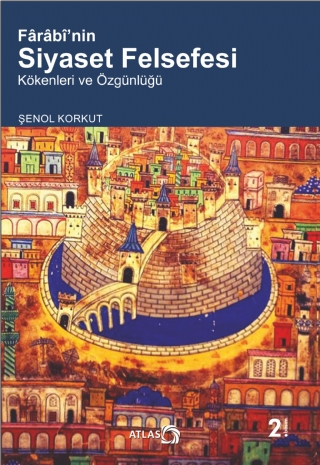
This book examines the political philosophy of the Second Muallim Fârâbî in terms of its origins and originality.
Fârâbî, who built the political science and philosophy in Islamic thought as a science, also pursued a series of alternative political theories to the political thought of the Athenian-oriented Greek philosophy. Al-Farabi, who built a unique political philosophy between the political elements brought by the revelation of Islam and the ancient Greek political philosophy, on the one hand brought new problem areas to political philosophy, on the other hand, he brought a new horizon to Islamic thought with the doctrine of virtuous and virtuous cities. It is possible to see the virtuous and immoral perspectives developed by the philosopher on the ground of philosophy, nation and medina, in all the problem groups he examines about political philosophy. In this book, on the one hand, virtuous philosophy, virtuous religion and the idealized philosophical adventure of the virtuous city are examined, on the other hand, the story of corrupt philosophy, corrupt religions and unvirtuous cities in the philosophical filter of the Second Teacher is discussed.
Fârâbî, who built the political science and philosophy in Islamic thought as a science, also pursued a series of alternative political theories to the political thought of the Athenian-oriented Greek philosophy. Al-Farabi, who built a unique political philosophy between the political elements brought by the revelation of Islam and the ancient Greek political philosophy, on the one hand brought new problem areas to political philosophy, on the other hand, he brought a new horizon to Islamic thought with the doctrine of virtuous and virtuous cities. It is possible to see the virtuous and immoral perspectives developed by the philosopher on the ground of philosophy, nation and medina, in all the problem groups he examines about political philosophy. In this book, on the one hand, virtuous philosophy, virtuous religion and the idealized philosophical adventure of the virtuous city are examined, on the other hand, the story of corrupt philosophy, corrupt religions and unvirtuous cities in the philosophical filter of the Second Teacher is discussed.

Dictionary of Philosophy Doctrines and Terms, mainly to prevent conceptual anarchy; in order to fill a large gap in the philosophy dictionary in the market, to arouse interest in philosophical issues, to warn especially young people against the bad and destructive effects and suggestions of negative currents, to show them the roots of these currents, to facilitate and give clues to those who are in the field of philosophy in the research they want to do. has been written. This dictionary; In addition to being a helpful book especially for philosophy teachers, students, and those who are closely or distantly interested in philosophy, it introduces readers from all fields to certain philosophical doctrines.

Süleyman Hayri Bolay is not a scientist who confines his scientific knowledge and thoughts within the walls of universities. He is a person who shares his writings with people from all layers and with the public since his youth. For this reason, even his works of philosophical intensity have attracted close attention and make an important contribution to the dissemination of philosophical thought.
Süleyman Hayri Bolay now publishes his articles, papers and other researches. These will be six books. The first is "Travels in the World of Philosophy". The second one will be "Travels in Turkish Thought".
“Travels in the World of Philosophy” includes his thoughts on many current issues such as human, family, society, nation, culture, death, democracy, postmodernism, human rights, globalization, national culture and national identity. We believe that the public will read these articles with pleasure.
Our publishing house is proud to publish this work of Süleyman Hayri Bolay, whose well-known and valuable works and writings have been accepted by the public for 45 years.
Süleyman Hayri Bolay now publishes his articles, papers and other researches. These will be six books. The first is "Travels in the World of Philosophy". The second one will be "Travels in Turkish Thought".
“Travels in the World of Philosophy” includes his thoughts on many current issues such as human, family, society, nation, culture, death, democracy, postmodernism, human rights, globalization, national culture and national identity. We believe that the public will read these articles with pleasure.
Our publishing house is proud to publish this work of Süleyman Hayri Bolay, whose well-known and valuable works and writings have been accepted by the public for 45 years.

This book deals with Turkish philosophers who gave lectures at Darü'l-Fünûn between 1908 and 1933 and their understanding of philosophy. Names such as Rıza Tevfik, Mehmet İzzet, Ziya Gökalp, Şekip Tunç, Ziya Somar, Orhan Sadeddin, Baha Tevfik who have left deep traces in our intellectual life and can be considered as examples of cultural continuity are discussed.
Thus, contrary to what is believed, it has been understood that philosophy studies in our country started much earlier than our universities under German influence and that it has a unique character. This work illuminates an important dark area in our culture.
Thus, contrary to what is believed, it has been understood that philosophy studies in our country started much earlier than our universities under German influence and that it has a unique character. This work illuminates an important dark area in our culture.

This book consists of lesson plans developed for the implementation of the Philosophy for Children (P4C) method.
It has been prepared based on the needs of teachers who want to practice with their students in their classrooms. It can also be used by Philosophy for Children practitioners and parents.
Lesson plans include philosophical inquiries into the topics in primary school Life Studies and Social Studies courses. Eighteen lesson plans, in which picture books are used as stimuli, cover not only the subjects and achievements in the curriculum of these lessons, but also basic skills and values.
Dr. Özge Özdemir carries out academic studies in the field of philosophy. Philosophy for Children is her specialty.
He wrote the lesson plans in this book after hundreds of hours of work with children, students and teachers.
It has been prepared based on the needs of teachers who want to practice with their students in their classrooms. It can also be used by Philosophy for Children practitioners and parents.
Lesson plans include philosophical inquiries into the topics in primary school Life Studies and Social Studies courses. Eighteen lesson plans, in which picture books are used as stimuli, cover not only the subjects and achievements in the curriculum of these lessons, but also basic skills and values.
Dr. Özge Özdemir carries out academic studies in the field of philosophy. Philosophy for Children is her specialty.
He wrote the lesson plans in this book after hundreds of hours of work with children, students and teachers.
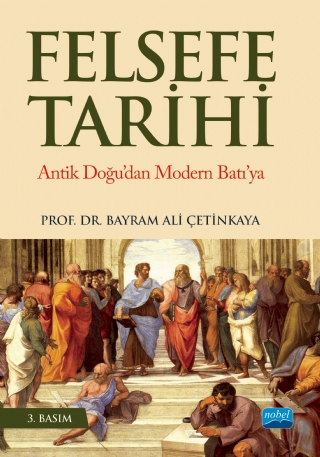
Among the many definitions of man, perhaps the most accepted definition is the one made by Aristotle. Aristotle, who defines man as a 'thinking creature', begins his Metaphysics with the sentence "Man naturally wants to know". If this is true, that is, if 'wanting to know' is man's most natural activity, the history of humanity is, in a way, the history of thought. And therefore, all sciences should be considered as projections of philosophy in other dimensions of existence.
This approach brings with it the fact that no matter what discipline one works in, one should have an idea about the history of thought.
The main motivation of this study is the acceptance that the history of philosophy is a field that will nourish and strengthen all fields of study.
This approach brings with it the fact that no matter what discipline one works in, one should have an idea about the history of thought.
The main motivation of this study is the acceptance that the history of philosophy is a field that will nourish and strengthen all fields of study.

Philosophy and Sufism consists of articles, papers and interviews that have been written on different occasions before. The common features of the texts are the study of Sufism, which is one of the basic institutions of our culture and civilization, and the values formed on its axis. In almost all chapters, it is seen that looking at philosophy and mystical concepts and themes will lead to a stimulating and enriching result for both fields.
In this book in your hand, mystics such as Mevlana and Yunus Emre are evaluated together with philosophers such as Camus and Bergson. In addition to such a comparative approach, there are original attempts such as evaluating the answers that Sufism can give to current problems as a source and horizon for today. The thesis that Sufis have not an old, timeless worldview and that Sufi contemplation is an ever-fresh answer to world problems is brought to the attention of the reader.
In this book in your hand, mystics such as Mevlana and Yunus Emre are evaluated together with philosophers such as Camus and Bergson. In addition to such a comparative approach, there are original attempts such as evaluating the answers that Sufism can give to current problems as a source and horizon for today. The thesis that Sufis have not an old, timeless worldview and that Sufi contemplation is an ever-fresh answer to world problems is brought to the attention of the reader.

Introduction to Philosophy is written for those seeking an introduction to philosophy as a discipline and intellectual activity. The work aims to make this introduction by introducing philosophy itself, its basic concepts, trends and subjects, and ways of thinking and reasoning specific to philosophy. In the work, which consists of eight chapters, after a first chapter that aims to establish an acquaintance with philosophy, issues related to epistemology, philosophy of science, philosophy of being, ethics, political philosophy, philosophy of religion and philosophy of art are included.
Introduction to Philosophy appeals to all those who want to meet philosophy and want to include philosophy, which we can define as "thinking on big questions in an argumentative and questioning way", into their lives in some way. Written for future teacher candidates. The most important feature of the work is that it deals with the subjects of philosophy with a constructivist approach, that is, the book, Introduction to Philosophy, has been created by using diagrams and visual materials in a way that will enable the student to think about philosophical questions and problems and make the necessary inquiries, instead of conveying ready-made information about the subjects and problems of philosophy.
Introduction to Philosophy appeals to all those who want to meet philosophy and want to include philosophy, which we can define as "thinking on big questions in an argumentative and questioning way", into their lives in some way. Written for future teacher candidates. The most important feature of the work is that it deals with the subjects of philosophy with a constructivist approach, that is, the book, Introduction to Philosophy, has been created by using diagrams and visual materials in a way that will enable the student to think about philosophical questions and problems and make the necessary inquiries, instead of conveying ready-made information about the subjects and problems of philosophy.

This work is the product of a long-term, meticulous and detailed study. It aimed to be different from its counterparts in Turkish philosophy literature in many aspects. With a total of fourteen chapters written by twelve authors, it encompasses almost all of the main problems in different fields of philosophy. The work not only deals with the problems in their context within the history of philosophy, but also interprets them from a contemporary perspective. There are three features that make the work stand out and make it exceptional:
First, it focuses on the very philosophical problems it deals with it examines the problems with an argumentative and dialectical method: First, it presents the reasoning that reveals the problems, then the views and theories for the solution of the problems, then the reasons and arguments that support these views and theories, and then the counter-arguments against the views and theories under the heading of criticism. Thus, the work does not describe a sub-field of philosophy with the views of philosophers, but actively follows the traces of the problems that built that field and brings it to the present day.
Secondly, we can say that this work has not received any share from the sad fate of the content and method disorganization of the edition books. Although the fourteen chapters were written by twelve different authors, the content of all chapters; has the same logical organization, parallel flow of thought, similar subject handling, and equivalent use of concepts and terms. The work has both the collective richness produced by twelve different minds and a systematic integrity as if produced by a single mind.
Third, as far as we know, the visual richness of this work has no analogues in the related philosophical literature. This work in your hand presents nearly three hundred images with a philosophical content that is both informative and questioning by associating them with the subject.
First, it focuses on the very philosophical problems it deals with it examines the problems with an argumentative and dialectical method: First, it presents the reasoning that reveals the problems, then the views and theories for the solution of the problems, then the reasons and arguments that support these views and theories, and then the counter-arguments against the views and theories under the heading of criticism. Thus, the work does not describe a sub-field of philosophy with the views of philosophers, but actively follows the traces of the problems that built that field and brings it to the present day.
Secondly, we can say that this work has not received any share from the sad fate of the content and method disorganization of the edition books. Although the fourteen chapters were written by twelve different authors, the content of all chapters; has the same logical organization, parallel flow of thought, similar subject handling, and equivalent use of concepts and terms. The work has both the collective richness produced by twelve different minds and a systematic integrity as if produced by a single mind.
Third, as far as we know, the visual richness of this work has no analogues in the related philosophical literature. This work in your hand presents nearly three hundred images with a philosophical content that is both informative and questioning by associating them with the subject.

The history of philosophy is, in a sense, the history of the philosopher's search for wisdom, who thinks about philosophy. Contrary to the famous judgment about him, Ghazali is the thinker who saved this search from dogmatism. He is a philosopher who constantly renews the traditional understanding and method, and opens new paths where existing approaches are blocked.
This book has been written with the intention and effort to re-analyze al-Ghazali and his discussions. In the study, the nature of the human being who is the subject of history, and the problems that people experience in the face of the truth they turn to know are examined. It is also discussed what kind of contributions Ghazali's solutions to the problem of 'knowing', which is a dynamic problem, can contribute to today's thought.
This book has been written with the intention and effort to re-analyze al-Ghazali and his discussions. In the study, the nature of the human being who is the subject of history, and the problems that people experience in the face of the truth they turn to know are examined. It is also discussed what kind of contributions Ghazali's solutions to the problem of 'knowing', which is a dynamic problem, can contribute to today's thought.

Today, we see that an approach that set out to give a complete and precise explanation of reality gradually loses its power to explain reality and abolish reality itself. The reason why C0VID-19 pushes us to rethink reality, human, god and society as much as other epidemics, but more powerfully than them, is that the understanding that established the modern world has turned reality into a superstition on its way to show reality free from superstitions. It is precisely in this situation that we need to re-remember the reality that we have exchanged for a virtual image and learn from the consequences of this bad trade. This book, which invites us to direct our thinking holistically to reality, to the principles that establish it, and to man's relationship with these principles, says that just such an orientation is a good start for the lessons to be learned.

This book, called Sufism Today, consists of articles written by writers from different intellectual and academic disciplines who seek solutions for today's problems of humanity, with the aim of reading and interpreting our age based on our own wisdom. In some of them, the proposals of Sufism are discussed on behalf of today and for the whole humanity, and in some of them, evaluations are made about Sufis. The fact that Islam has integrated different geographies, different cultures and different people around the principle of tawhid is re-interpreted today. This book is an invitation to reunite with ancient wisdom in line with today's needs for the solution of human problems around the world.

Although the nomenclature of Islamic Philosophy has an ancient history in terms of meaning, it is a fairly new composition as a name. In the first quarter of the 20th century, Islamic philosophy courses, which found a place in the curriculum as a result of the reforms in the field of education, which was an important pillar of the Ottoman modernization attempts, appear as an important area where this composition was transferred to the field of existence. In a time when Western values and thoughts make their presence felt, and sometimes domination, in the Islamic world, with which arguments Muslim Turkish intellectuals and scientists re-presented and defended their world of thought, how they meet and understand the criticisms and accusations against their realm of existence, and how they are trying to attract and/or dispose of; How they define the history of Islamic philosophy/thought within the current conditions and conditions remains among the intriguing questions.
This study in your hand II. It examines the formation process of philosophy and Islamic philosophy courses in Darülfünun and madrasah, which started to be included in the curriculum with the reform movements that took place in the field of education after the Constitutional Monarchy, and the teachers of these courses, the texts taught in Islamic philosophy courses, and sheds some light on our modernization history.
This study in your hand II. It examines the formation process of philosophy and Islamic philosophy courses in Darülfünun and madrasah, which started to be included in the curriculum with the reform movements that took place in the field of education after the Constitutional Monarchy, and the teachers of these courses, the texts taught in Islamic philosophy courses, and sheds some light on our modernization history.

There are two basic dynamics of shaping contemporary thought in Muslim societies. The first of these is related to internal developments and the other to external conditions. Including? as intellectuals and ulama; They encountered issues such as the meaning and maintenance of tradition, the structure and change of Muslim identity, interpretation of new social problems and producing solutions, and making sense of political developments. In this framework, the main agenda has been formed within the framework of the problematic of Islamic renewal, and the second dynamic is external factors. In this respect, the confrontation with modern technology, industry and bureaucracy in the 19th century caused Muslim societies to go into a serious crisis. While this crisis caused Muslim societies to not be able to maintain their own intellectual lives, the need to respond and overcome it also gave a new form to thought. This communication with the outside has created various intermediate forms by interacting with Islamic concepts and thoughts.
Discussing the basic elements and limits of Islamic thought and examining its counterpart in the contemporary world has become a necessary ground. These discussions are possible by understanding the explanation of the basic concepts of Islamism, its use and transformation throughout history. Since the second half of the 19th century, the concepts of revival, reform, and reform have come to the fore as an offer against the problems that Muslim peoples are dealing with. These are concepts that have a deep-rooted history in the tradition of Islamic thought and politics, although they have been transformed in modern discourse and used in some places before the other.
The workshops, which were held within the scope of the Islamist Journals Project, with the banner of Basic Issues and Concepts, aim to add new dimensions to the rooted discussions of Islamist thought. As a product of this effort, this book is an enhanced version of the presentations made by Mehmet Ali Büyükkara, Özgür Kavak and Murat Kayacan at the "Improvement" workshop held on November 23, 2019. This book is an in-depth analysis of the issues and approaches on which Islamist thought is built. serial offer.
Discussing the basic elements and limits of Islamic thought and examining its counterpart in the contemporary world has become a necessary ground. These discussions are possible by understanding the explanation of the basic concepts of Islamism, its use and transformation throughout history. Since the second half of the 19th century, the concepts of revival, reform, and reform have come to the fore as an offer against the problems that Muslim peoples are dealing with. These are concepts that have a deep-rooted history in the tradition of Islamic thought and politics, although they have been transformed in modern discourse and used in some places before the other.
The workshops, which were held within the scope of the Islamist Journals Project, with the banner of Basic Issues and Concepts, aim to add new dimensions to the rooted discussions of Islamist thought. As a product of this effort, this book is an enhanced version of the presentations made by Mehmet Ali Büyükkara, Özgür Kavak and Murat Kayacan at the "Improvement" workshop held on November 23, 2019. This book is an in-depth analysis of the issues and approaches on which Islamist thought is built. serial offer.

In the book, it has been tried to give a historical process how the science of astronomy has developed from the ancient times to the present. This work; it consists of six main sections: The Birth of Astronomy and Astronomy in Ancient Civilizations, Astronomy in the Ancient Greek Period, Medieval Astronomy, Renaissance and Copernican Theory, Modern Astronomy and the Development of Astronomy After the 17th Century. In the first part of the book, the contributions of ancient civilizations to astronomy are discussed, and in the second part, the contributions of the ancient Greek civilization to astronomy. The third part, which is devoted to medieval astronomy, consists of two parts, astronomy in the Christian World and astronomy in the Islamic World. In addition, in this part, the development of astronomy from the foundation of the Ottoman Empire to the Republic and the introduction of modern astronomy to the Ottoman Empire are discussed. In the fourth chapter, the Heliocentric Theory of the Universe founded by Copernicus, and in the fifth chapter, modern astronomy established by Kepler. The last chapter is devoted to the study of astronomy after the seventeenth century.

From the moment we were convinced that man was born without a given meaning and was defined by the functions or roles he was assigned from the moment he opened his eyes, it became increasingly difficult to expect anything from man. Moreover, such expectations were always confronted with demands for freedom. This book is "What can we expect from a free man?" It grew out of a strong belief that the question can still be asked in a meaningful way. The different conceptions of man in the Islamic tradition of thought, despite all their differences, are optimistic about our expectations of man. However, how this expectation can be grounded. He found different answers within the philosophical, theological, mystical and jurisprudential perspectives in the tradition of Islamic thought.
The study, which includes fourteen articles, investigates the answers given by different disciplines in the tradition of Islamic thought and the different schools within these disciplines to the question of what a human is and what is really expected of him. For these perspectives, which all consider human life as a long story that progresses in a constant test, human is always something that is "being". The main factors that direct our ability to "be", where this ability should lead, and the areas of accrual constitute important topics in the evaluations of what a human being is. The articles in this study proceed through these questions, while investigating the nature of human beings in the traditions of philosophy, theology, mysticism and fiqh, on the other hand, they deepen the current possibilities of these perspectives.
The study, which includes fourteen articles, investigates the answers given by different disciplines in the tradition of Islamic thought and the different schools within these disciplines to the question of what a human is and what is really expected of him. For these perspectives, which all consider human life as a long story that progresses in a constant test, human is always something that is "being". The main factors that direct our ability to "be", where this ability should lead, and the areas of accrual constitute important topics in the evaluations of what a human being is. The articles in this study proceed through these questions, while investigating the nature of human beings in the traditions of philosophy, theology, mysticism and fiqh, on the other hand, they deepen the current possibilities of these perspectives.

The conceptions of the nature of man, the ethics of human actions throughout history. determined his political and metaphysical orientations. Therefore, it can be said that many emerging structures, from moral choices to social organizations, from state orders to education systems, are a direct or indirect manifestation of the answer to the question of what human is. For this reason, the question of what man is is central to any conception of the world. modernity. By radically transforming the classical conceptions of the nature of man, he revealed one of the most important breaks in human history. It is therefore a way of achieving a correct understanding of the modern period. It is through identifying and analyzing the transformations of human imagination in this period.
In this book, the debates about the nature of human being in modern Western thought are discussed and the effects of different definitions of human in these fields on the formation and transformation of various scientific disciplines are evaluated. In addition, the book also includes various debates in contemporary Islamic thought, providing an answer to the question of how the transformations that emerged with modernity affect human conceptions in the Islamic world. In this way, readers will have the opportunity to follow the simultaneous and simultaneous effects of the radically changing universe and human imagination.
In this book, the debates about the nature of human being in modern Western thought are discussed and the effects of different definitions of human in these fields on the formation and transformation of various scientific disciplines are evaluated. In addition, the book also includes various debates in contemporary Islamic thought, providing an answer to the question of how the transformations that emerged with modernity affect human conceptions in the Islamic world. In this way, readers will have the opportunity to follow the simultaneous and simultaneous effects of the radically changing universe and human imagination.

Ethics is a field that has been widely discussed in Islamic thought, from practical philosophy to various religious sciences. In this respect, while morality is accepted as one of the philosophical sciences, it is also discussed with different aspects in religious sciences such as hadith, kalam, fiqh and mysticism. In order to examine and present morality, which is at the intersection of multiple disciplines, with all its dimensions, these sciences should be considered in terms of their own internal dynamics. Such an effort seems essential for understanding the morality in Islamic thought with all its dimensions.
In line with this need, roundtable meetings titled "Basic Characteristics of Islamic Moral Literature" were held between March 2013 and March 201A within the scope of the "Islamic Moral Thought Project" carried out by the Scientific Studies Association (ILEM) and the Science Culture and Education Association (ILKE), and the literature on morality has its own discussed in terms of their specifics. This book in your hand consists of the articles of the presentations made at these meetings.
In line with this need, roundtable meetings titled "Basic Characteristics of Islamic Moral Literature" were held between March 2013 and March 201A within the scope of the "Islamic Moral Thought Project" carried out by the Scientific Studies Association (ILEM) and the Science Culture and Education Association (ILKE), and the literature on morality has its own discussed in terms of their specifics. This book in your hand consists of the articles of the presentations made at these meetings.
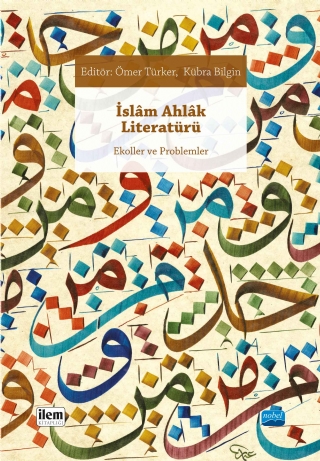
Ethics is a field that has been widely discussed in Islamic thought, from practical philosophy to various religious sciences. In this respect, while morality is accepted as one of the philosophical sciences, it is also discussed with different aspects in religious sciences such as hadith, kalam, fiqh and mysticism. In order to examine and present morality, which is at the intersection of more than one discipline, with all its dimensions, these sciences should be handled in terms of their own internal dynamics. Such an effort seems to be essential for understanding the morality in Islamic thought with all its dimensions.
Based on this need, roundtable meetings titled “Basic Characteristics of Islamic Moral Literature” were held between March 2013 and March 2014 within the scope of the “Islamic Moral Thought Project” carried out by the Scientific Studies Association (ILEM) and the İLKE Science Culture and Education Association, and the literature on ethics was held in the context of its own characteristics. has been discussed. This book in your hand consists of articles from the presentations made at these meetings.
Based on this need, roundtable meetings titled “Basic Characteristics of Islamic Moral Literature” were held between March 2013 and March 2014 within the scope of the “Islamic Moral Thought Project” carried out by the Scientific Studies Association (ILEM) and the İLKE Science Culture and Education Association, and the literature on ethics was held in the context of its own characteristics. has been discussed. This book in your hand consists of articles from the presentations made at these meetings.
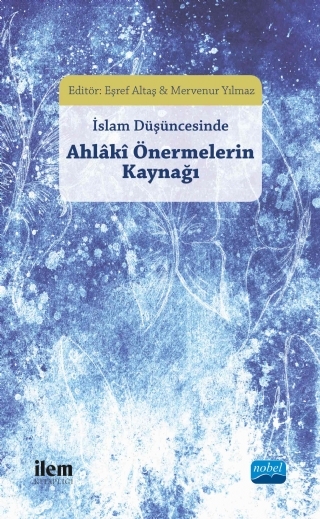
What is the principle or source that enables us to evaluate moral judgments, in other words, moral propositions as good or bad? It is possible to find different answers in the history of thought that this source is pleasure, nature, emotion, reason, intuition, society, and divine will. But where do I get that Justice is good and cruelty is bad? The answer we give to the question brings us face to face with different questions again. For example, if our answer is the mind, what is the characteristic of this mind or which mind is it? Do human nature, emotions, intuition play a role in the society's judgment of good and bad actions regarding actions? What is the role of divine revelation in determining the moral field? In this book, it is aimed to deal with such questions that can be multiplied in relation to moral judgments, mainly under the question of the source of moral propositions.

The debate about whether the biological and hereditary characteristics inherited in the formation and differentiation of personality, which can be expressed as human nature in the most general sense, or whether the diversity of experiences are of fundamental importance, points to a problem that can be traced back to the early periods of philosophy and continues to exist with the same vitality today. The theories of temperament, as a way of explaining human nature, are related to physics and medicine, while their results are directly related to human actions and being in this world.
The book in your hand is an expanded output of the roundtable meetings held in 2015 on the theories of temperament in Islamic thought within the scope of the Islamic Moral Thought Project. Articles in the book; It focuses on the temperament theory, which has a very central place in the understanding of human personality and character, after Hippocrates (375 BC) and Galen (d. 200), and more specifically, the appearance of the problem in some Islamic philosophers and theologians. The book aims to be a start for readers who want to deal with the subject and to contribute to new reading, understanding and interpretation processes that will be made in comparison with the new aspects of the problem.
The book in your hand is an expanded output of the roundtable meetings held in 2015 on the theories of temperament in Islamic thought within the scope of the Islamic Moral Thought Project. Articles in the book; It focuses on the temperament theory, which has a very central place in the understanding of human personality and character, after Hippocrates (375 BC) and Galen (d. 200), and more specifically, the appearance of the problem in some Islamic philosophers and theologians. The book aims to be a start for readers who want to deal with the subject and to contribute to new reading, understanding and interpretation processes that will be made in comparison with the new aspects of the problem.

This study, which is an attempt to analyze the etymology of the concept of love (al-mehabbe), aims to reveal the expansions of the concept of love in Islamic thought regarding its metaphysical, physical, moral and political dimensions.
In the study, by pointing out the difference in nature of the love of Allah and the love of the creatures, the problems that Islamic thinkers discussed around the concept of love were included, thus providing the opportunity to compare the writings of Islamic philosophers, theologians and mystics about love.
This work, which reveals the analysis of the concept of love in the light of the texts written on Islamic thought, aims to inform its readers that love is an indispensable trait for the individual to gain moral competence and to establish social cohesion perfectly.
In the study, by pointing out the difference in nature of the love of Allah and the love of the creatures, the problems that Islamic thinkers discussed around the concept of love were included, thus providing the opportunity to compare the writings of Islamic philosophers, theologians and mystics about love.
This work, which reveals the analysis of the concept of love in the light of the texts written on Islamic thought, aims to inform its readers that love is an indispensable trait for the individual to gain moral competence and to establish social cohesion perfectly.
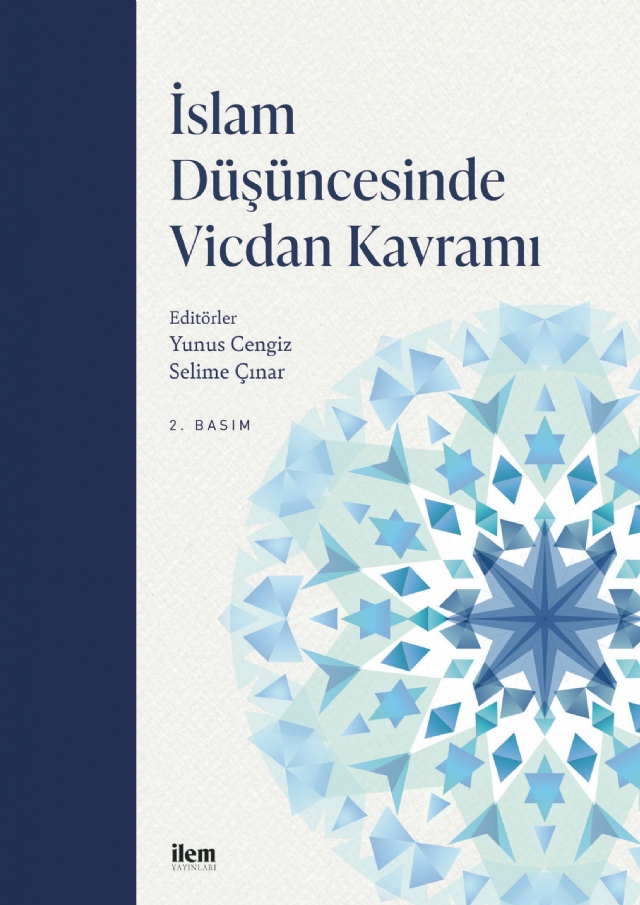
The concept of conscience, which is one of the key concepts for moral thought, is often used in the sense of "moral consciousness" today. When we look at the thought of Islam, it is difficult to say that the word conscience is used in this sense or that it is commonly used with such a content. As a matter of fact, in many texts, this concept is mentioned in a way that corresponds to intuition in an epistemological sense, not moral.
The aim of this study is to process the concept of conscience through Islamic traditions and to determine the equivalent of the concept in these traditions. This situation necessitates us to deal with the texts that aim to analyze the mental states and their practical consequences that provide the moral awareness of the actor against an action, regardless of whether the conscience is literal or not. If we do this, we will not only find the opportunity to reinterpret the classical texts on moral psychology, but also contribute to the reproduction of Islamic moral philosophy.
In the articles included in this book, which consists of the works presented at the Conscience in Islamic Thought Workshop hosted by İLEM-ILKE on June 3-4, 2016 within the scope of the Islamic Moral Thought Project, the way of problematizing the inner state that encourages people to act correctly, their reflections in different fields and psychological -theological foundations are discussed in terms of relevant traditions.
The aim of this study is to process the concept of conscience through Islamic traditions and to determine the equivalent of the concept in these traditions. This situation necessitates us to deal with the texts that aim to analyze the mental states and their practical consequences that provide the moral awareness of the actor against an action, regardless of whether the conscience is literal or not. If we do this, we will not only find the opportunity to reinterpret the classical texts on moral psychology, but also contribute to the reproduction of Islamic moral philosophy.
In the articles included in this book, which consists of the works presented at the Conscience in Islamic Thought Workshop hosted by İLEM-ILKE on June 3-4, 2016 within the scope of the Islamic Moral Thought Project, the way of problematizing the inner state that encourages people to act correctly, their reflections in different fields and psychological -theological foundations are discussed in terms of relevant traditions.

The book in your hand may sound a bit ambitious, but it is an attempt at a philosophical interpretation of Islam. What this means for us is that today's people want to test knowledge with its philosophical dimensions. Moreover, let this type of knowledge be the field of metaphysical knowledge. One of the most important approaches of contemporary epistemology is the principle of verification. In the nature of this principle, whether a proposition is true or not is directly proportional to whether the content of that proposition is supported by facts. What is wanted to be done here is to apply the principle of verification on the data of religion with a philosophical methodology. The starting point of such an attempt is to reveal the importance of the philosophical dimension of the data of revelation, as well as the principles of belief and worship of religion. In order for today's people to believe in religious or philosophical knowledge and to accept its truth, they must be convinced with their mental, logical and philosophical proofs. In other words, the "why" is more important than the "how". In this study, we tried to deal with the data of revelation in this way. What is wanted to be done here is to ground the revelation data of the religion of Islam with its mental and philosophical dimensions, to reveal the "why" and "why", in short, to focus on "wisdom", and leave the "how" to the experts. This work of ours is not a repetition of what is known or a longing for some past achievements. It is not an effort to renew our faith by trying to reconcile scientific developments or discoveries with the verses of the Qur'an. What is desired to be done here is to consider a truth with different dimensions. While we are trying to rediscover our science, wisdom, philosophy and civilization, it is necessary to see the stones we will lay on this path as an effort to create a solid ground.

There are many attempts to define the nature of man. The most common and almost agreed upon among these attempts is that man is a political creature. Man is a being who lives in a community, makes sense and establishes himself in a community. However, the transformation of this obligatory union of people into a good and fair system poses an important problem. Various political systems have been developed throughout history to establish and maintain such a social order. One of the most important and urgent problems facing humanity today is the formation of a good, beneficial and just order for everyone.
This work has been prepared in order to draw a theoretical framework for Islamic political thought by using the possibilities and tools of contemporary political science and political philosophy.
This book, which includes 11 articles written by competent academics in the field, aims to provide new expansions of classical origin to Islamic political thought, which has been shaped by Western influence in the modern period. For this reason, it aims to systematically address ancient issues in a conceptual continuity and thus to bring Islamic political thought to the present.
This work has been prepared in order to draw a theoretical framework for Islamic political thought by using the possibilities and tools of contemporary political science and political philosophy.
This book, which includes 11 articles written by competent academics in the field, aims to provide new expansions of classical origin to Islamic political thought, which has been shaped by Western influence in the modern period. For this reason, it aims to systematically address ancient issues in a conceptual continuity and thus to bring Islamic political thought to the present.

One of the most important and prioritized elements that ensure the continuity of a branch of science is the determination of its central concepts and ensuring its natural continuity. In particular, the studies to be carried out within the framework of social sciences give clues about the scientificization processes of the relevant branch of science, as the concepts corresponding to the reasonable meanings in the field of that science are attributed to the term/term, which means that they are a name for a meaning in the language.
Today, the dominant concept in social sciences and the terminological expressions accordingly are determined on the axis of the dominance of Eurocentric definitions, and this concept-definition relationship ensures the continuation of Eurocentric interpretations. In this way, definitions made with concepts produced contrary to the core values and structure of society prevent authentic productions in social sciences. The development of a correct social science, which takes into account the structure and culture of the Islamic society, and accordingly providing a correct scientific thought ground, first of all necessitates a conceptual and theoretical framework that can be followed in terms of local and origins.
The book in your hand has been prepared in order to lay the groundwork for developing new concepts in social sciences in line with these requirements and to identify areas of opportunity.
Today, the dominant concept in social sciences and the terminological expressions accordingly are determined on the axis of the dominance of Eurocentric definitions, and this concept-definition relationship ensures the continuation of Eurocentric interpretations. In this way, definitions made with concepts produced contrary to the core values and structure of society prevent authentic productions in social sciences. The development of a correct social science, which takes into account the structure and culture of the Islamic society, and accordingly providing a correct scientific thought ground, first of all necessitates a conceptual and theoretical framework that can be followed in terms of local and origins.
The book in your hand has been prepared in order to lay the groundwork for developing new concepts in social sciences in line with these requirements and to identify areas of opportunity.

In today's world where the expressions of the imagination of civilization are used frequently, it is necessary to realize that civilization is and can be based on a philosophical unity and harmony in order for the actual content and meaning of this term to be realized.
Civilization and Philosophy is a study that brings up the mutual relations of these two fields and what they owe to each other. It seems to be an invitation to examine and scrutinize these areas. The studies brought together in this book, which can be read as a landmark on the way to reach the philosophical consciousness of our civilization and to make a philosophical critique, had previously reached a limited audience as articles, papers and conferences. Now, this issue, which is one of the main agenda items of Turkish Thought, is presented to the attention of a wider readership.
We hope that this work will be an opportunity to realize that the idea of a civilization without philosophy would be wrong.
Civilization and Philosophy is a study that brings up the mutual relations of these two fields and what they owe to each other. It seems to be an invitation to examine and scrutinize these areas. The studies brought together in this book, which can be read as a landmark on the way to reach the philosophical consciousness of our civilization and to make a philosophical critique, had previously reached a limited audience as articles, papers and conferences. Now, this issue, which is one of the main agenda items of Turkish Thought, is presented to the attention of a wider readership.
We hope that this work will be an opportunity to realize that the idea of a civilization without philosophy would be wrong.

Although the research on Ottoman science in Turkey is carried back to 1955 academically, it is still very new. For the last 20 years or so, important studies have been carried out on Ottoman science, and with these studies, general opinions about Ottoman science have gradually changed. In particular, the Ottomans did not follow the West sufficiently, and the evaluations made only by looking at the innovation movements are far from drawing the general framework of Ottoman science. Studies of the history of science show us that the success of civilizations is largely dependent on scientific and cultural movements. In this sense, it is impossible to say that the Ottoman Empire, which managed to become a 600-year-old world empire, failed in science. This book, which we call Science and Technology in the Ottomans, is a study that compiles the researches of science historians working in this field in Turkey and consists of some published articles. The aim of the study is to convey the researches and results in this field to the general reader. Science and Technology in the Ottomans consists of three main parts. The first chapter contains general writings on Ottoman science and is titled An Overview of Science and Philosophy. The second part is devoted to the subject of Mathematical Sciences (Mathematics, Astronomy and Physics) in the Ottomans. The third part includes the subjects of Geography, Geology, Medicine and Technology in the Ottomans.

Death, which is intertwined with life and its only reality, has always attracted people's attention. Death, which we do not have a definite knowledge about what it is, continues to be a problem in philosophy from ancient times to this day. In fact, thinking about life rather than death because of the mysteries it carries is the wisest way of coping with death. Because the fear of death rather than death is abrasive and distracts people from their originality. Making sense of one's life with this perspective, organizing it accordingly, revealing its own meaning and value will be its only victory against death.

"My word ends here. Praise be to Allah. All my wish, supplication and prayer is that God Almighty bestows goodness on this servant of mine and that he attains His Divine consent. Inshallah. Amen." The book in your hand presents a concise framework to get to know Sabahaddin Zaim better, who completed the memoir in the form of a memoir. The book is eye-opening for those who are curious about firstly good morals, then useful science equipped with good morals, and finally someone who carries his useful knowledge to the level of sincerity and righteous deeds.

Our first goal in preparing this voluminous work is to enable our new generations to meet with the creative thoughts of their grandfathers and fathers in the recent past; to enable them to see everything with their own eyes and think with their own minds, and to help them circulate their own ideas. In this regard, we will not first lease our minds to the West or borrow their minds and lie on it. Because not only they are thinking, we are thinking too, we are also making “production ideas”.
Today, Turkey is located in the "periphery", not the center that determines and determines the intellectual agenda in the world, and often acts in a peripheral situation depending on the agendas determined by the center.
Therefore, our second goal is to help pave the way for getting out of the periphery and being at the centre. At the same time, it is to help the revival of our civilization, which we belong to in history, as an alternative, and to contribute to our thought life in its rebuilding.
This book also aims to reveal that contemporary Turkish thought is strong enough to be showcased in the world thought arena. If the development of our intellectual life towards its “natural medium” continues, it is certain that Turkish thought will make a significant contribution to world thought by producing newer and more original ideas. Now, we should leave behind the period of self-evaluation according to the thoughts of Western thinkers, and aim at the level where they can evaluate their own thoughts by looking at our products of thought, as in the past. We must be aware of it, so that we can move on to the periods of producing more of our new and universal ideas.
Today, Turkey is located in the "periphery", not the center that determines and determines the intellectual agenda in the world, and often acts in a peripheral situation depending on the agendas determined by the center.
Therefore, our second goal is to help pave the way for getting out of the periphery and being at the centre. At the same time, it is to help the revival of our civilization, which we belong to in history, as an alternative, and to contribute to our thought life in its rebuilding.
This book also aims to reveal that contemporary Turkish thought is strong enough to be showcased in the world thought arena. If the development of our intellectual life towards its “natural medium” continues, it is certain that Turkish thought will make a significant contribution to world thought by producing newer and more original ideas. Now, we should leave behind the period of self-evaluation according to the thoughts of Western thinkers, and aim at the level where they can evaluate their own thoughts by looking at our products of thought, as in the past. We must be aware of it, so that we can move on to the periods of producing more of our new and universal ideas.
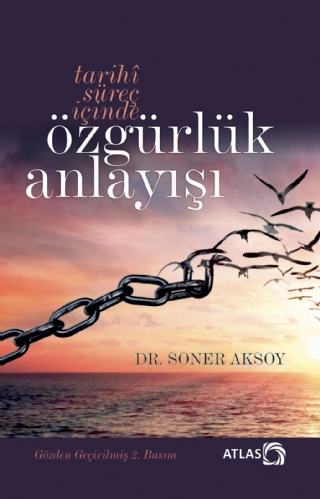
Objecting is an important act of courage that not everyone uses. This action has an important place in the life of thinking people. Those who use their minds may prefer to criticize while thinking and to judge when necessary. While some object to it from within, others express it. That's what I like to express without hesitation. Actually, I don't want to make it seem like a person to accept everything that is said, read or even see, and swallow it like a pill without question.
My purpose is not to mean a blind person who opposes everything that comes his way without thinking, back and forth, constantly objecting. I think that transferring the protest action with a reasonable and balanced approach can yield good results. This is a trait we expect from our intellectuals in particular. It should be done in order to tell the truth, to tell what is right without hesitation, to reveal any mistakes or mistakes, and to illuminate a view from a different perspective in order to seek the truth and the better.
Unfortunately, there is such a disease in our country. A secret virus implanted in minds when they were younger. It is almost a secret way of stopping development, growth, change, shooting ourselves in the foot, destroying the creative qualities of our children, killing the excitement and reducing productivity! There is a strong need for an education and training system that kills this hidden virus of society. What we need is serious and responsible for events; They are brave and virtuous young people who do not approach cynically, question, judge, try to learn why and why, and know how to object.
My purpose is not to mean a blind person who opposes everything that comes his way without thinking, back and forth, constantly objecting. I think that transferring the protest action with a reasonable and balanced approach can yield good results. This is a trait we expect from our intellectuals in particular. It should be done in order to tell the truth, to tell what is right without hesitation, to reveal any mistakes or mistakes, and to illuminate a view from a different perspective in order to seek the truth and the better.
Unfortunately, there is such a disease in our country. A secret virus implanted in minds when they were younger. It is almost a secret way of stopping development, growth, change, shooting ourselves in the foot, destroying the creative qualities of our children, killing the excitement and reducing productivity! There is a strong need for an education and training system that kills this hidden virus of society. What we need is serious and responsible for events; They are brave and virtuous young people who do not approach cynically, question, judge, try to learn why and why, and know how to object.
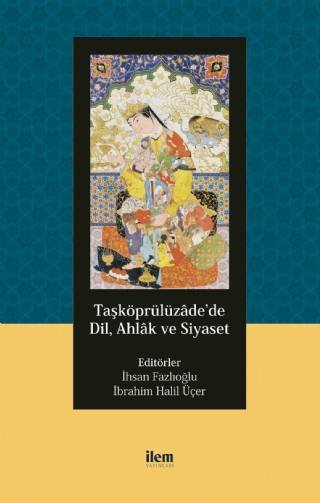
Taşköprülüzâde, one of the most prolific names of the Islamic tradition of thought in the 16th century, on the one hand gives a true representation of his era, which is called the Late Renewal Period and which stands out with its methodological integration efforts, on the other hand, stands out as a complete heir to the scientific knowledge produced in previous periods. In this respect, he reconsidered the main problems that developed within the traditions of theology, philosophy and mysticism, which he inherited, in accordance with the gradual understanding of knowledge and reality of his age, and brought a holistic view to different fields of theoretical and practical thought with the works he wrote.
This book, on the one hand, reveals Taşköprülüzâde's contributions to the field of practical philosophy through the basic concepts of political and moral thought, on the other hand, it shows the ways in which the thinker deals with the tradition of Islamic linguistics and its main problems by focusing on the linguistics tradition. In addition, in the book, the reader will have the opportunity to observe the practical politics of Taşköprülüzâde, who is also a judge, by seeing how Taşköprülüzâde has contributed to the polemic literature that can be considered current in terms of the thinker's refusal against the Jews.
This book, on the one hand, reveals Taşköprülüzâde's contributions to the field of practical philosophy through the basic concepts of political and moral thought, on the other hand, it shows the ways in which the thinker deals with the tradition of Islamic linguistics and its main problems by focusing on the linguistics tradition. In addition, in the book, the reader will have the opportunity to observe the practical politics of Taşköprülüzâde, who is also a judge, by seeing how Taşköprülüzâde has contributed to the polemic literature that can be considered current in terms of the thinker's refusal against the Jews.

Taşköprülüzâde Ahmed Efendi left his mark on Ottoman thought as a versatile scholar. In this book, besides examining the life story of Taşköprülüzâde in detail, we tried to position him in his family, starting with his grandfathers, to describe him in the context of his teachers, peers and students, to classify and introduce his works. We included the life stories of three generations of the Taşköprülüzâdeler family and tried to write a collective life story. We have published an unknown work of Taşköprülüzâde that contains autobiographical records. In addition, the relations of the members of four generations of the family with the bureaucracy of the period were discussed in a separate article. The story of Taşköprülüzâde, which is told here and discussed in a broad framework about how an Ottoman scholar grew up and how he produced, claims to present a model for the writing of the "ulema biography" and the studies of the ulema. Our study, in a more general sense, is a candidate to be a cornerstone in the studies of Ottoman ilmiye with its "ulema family monograph" feature.
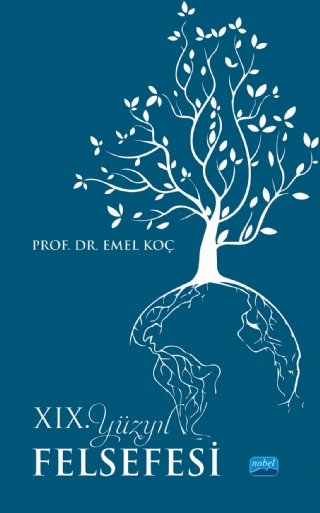
XIX. century; XX. It is a period in which the foundations of many philosophical movements of the 20th century were laid, and the history of philosophy was as "productive" as it was "intensive" in the intellectual sense. XIX. The intellectual life of the twentieth century is more complex and intense than at any previous period in the history of philosophy. It can be said that the intellectual complexity and intensity of the century is due to the existence of different factors that feed and shape the intellectual environment. XIX. Among the main sources feeding the philosophy of the XVI century. scientific developments since the century; technological developments shaped accordingly and completely changing the living standard of people; The beginning of the Industrial Revolution, which changed Western people from head to toe with scientific and technological developments, and the XVIII. The American and French Revolutions, which were influenced by the Enlightenment Age thinkers of the 20th century, and the striking political events in European and world history brought about by the Revolutions can be counted. XIX. The commemoration of the 19th century with the emphasis on different qualities such as the "Century of History", "The Century of Natural Sciences", "The Century of Techniques and Inventions", and "The Age of Ideology" reflects the productivity of the century and its scientific, technological, political and social development and transformation.
XIX. In this work named Philosophy of the Century; On the one hand, philosophers such as GWF Hegel, KH Marx, A. Comte, J. Bentham, SA Kierkegaard, F. Nietzsche who reflected the spirit of the period and reflected the spirit of a period with such intellectual richness and complexity, and on the other hand, there are not enough academicians in our country yet. neglected philosophers such as FH Bradley and J. Royce, for whom the study is not available, are included.
XIX. In this work named Philosophy of the Century; On the one hand, philosophers such as GWF Hegel, KH Marx, A. Comte, J. Bentham, SA Kierkegaard, F. Nietzsche who reflected the spirit of the period and reflected the spirit of a period with such intellectual richness and complexity, and on the other hand, there are not enough academicians in our country yet. neglected philosophers such as FH Bradley and J. Royce, for whom the study is not available, are included.
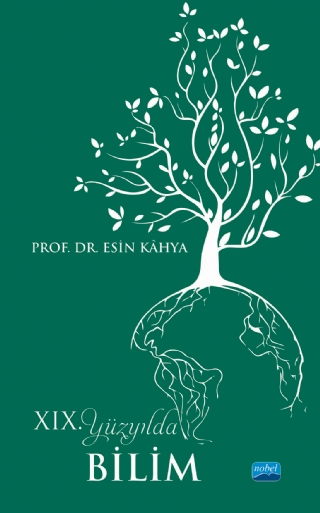
In general, the nineteenth century is a period of political, economic, social and cultural restructuring all over the world. It is possible to determine this change not only in political life, but also in social structuring, various branches of art, philosophy and science.
In this period, the steps taken in different branches of science, such as mathematics (calculation of probability, etc.), astronomy (finding new planets and studies on the universe system, etc.), physics (electricity and mechanics, etc.), chemistry (atomic theory, organic and inorganic chemistry). studies), developments in biology (the theory of evolution and heredity, cell research, etc.) and developments in medicine (microbiology, pathology, developments in physiology, etc.) have determined the scientific problematic of the twentieth and twenty-first centuries. Today, we continue to build our scientific structure on the foundations laid at that time.
In this period, the steps taken in different branches of science, such as mathematics (calculation of probability, etc.), astronomy (finding new planets and studies on the universe system, etc.), physics (electricity and mechanics, etc.), chemistry (atomic theory, organic and inorganic chemistry). studies), developments in biology (the theory of evolution and heredity, cell research, etc.) and developments in medicine (microbiology, pathology, developments in physiology, etc.) have determined the scientific problematic of the twentieth and twenty-first centuries. Today, we continue to build our scientific structure on the foundations laid at that time.